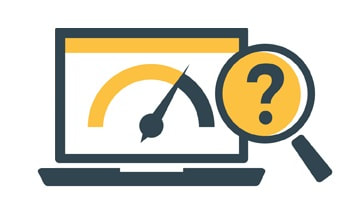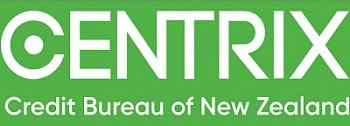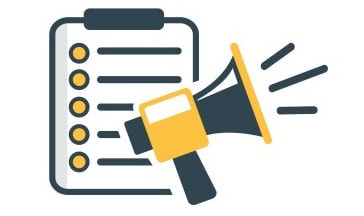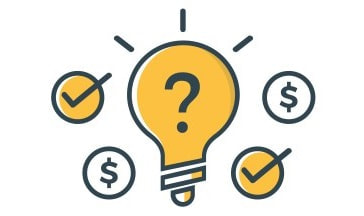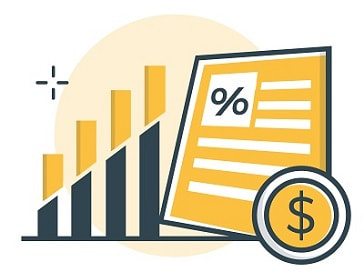How to Build a Strong Credit History and Score - The Definitive New Zealand Guide
Our 8+ tips help you to build credit safely while paying bills on time and paying off loans and debts when they're due.
Updated 8 April 2024
Summary:
Our guide explains, step by step, how you can build a credit history and get the best deals on credit products. We cover:
Know this first: Debt is dangerous if you don't use it properly. But, at the same time, you will, at some time, probably need to use credit. This guide does not encourage borrowing without purpose; instead, we outline how to improve your credit safely. The earlier you start doing this, the better.
- New Zealand lenders are increasingly focused on the credit history of their customers when assessing applications. Lenders know that past behaviour (for example, paying bills on time) indicates future behaviour.
- If you've paid late or missed payments altogether and defaulted, this will almost certainly affect whether or not you'll be rejected for a loan, mortgage, phone contract, broadband deal or power contract.
Our guide explains, step by step, how you can build a credit history and get the best deals on credit products. We cover:
Know this first: Debt is dangerous if you don't use it properly. But, at the same time, you will, at some time, probably need to use credit. This guide does not encourage borrowing without purpose; instead, we outline how to improve your credit safely. The earlier you start doing this, the better.
Why do credit scores and history matter?
A good history gives you the best chance of affordable credit and approval. Specifically:
- You'll be offered lower interest rates on loans and financing if you have good credit. This is because interest rates are based on risk - the higher the risk, the higher the interest rate, which drives the total cost of borrowing.
- For example, say you want to borrow $10,000 for five years: if you have a good credit history, you may secure an interest rate of 6% p.a; someone with no credit history might pay 12% p.a and someone with bad credit history could easily pay 20% p.a. (or more).
- The total interest cost of these loans over five years are $1,600, $3,347 and $5,896, respectively - it's clear that having good credit cuts down borrowing costs.
- And, when the time comes to apply for a mortgage, having a sufficient deposit and reliable source of income is essential. However, the bank will need to see a credit history (i.e. built by regular credit cards, utility and direct debit payments) to make sure you're a suitable borrower.
What things help me to build credit history?
Many everyday expenses qualify. These include:
The more credit history you have, the more predictable your behaviour is, which helps during the assessment process.
- Broadband and power bills (if the accounts are in your name)
- Phone contacts (if you're financing a new phone with your monthly plan)
- Credit cards
- Overdrafts
- Buy Now Pay Later apps (for example, Afterpay)
The more credit history you have, the more predictable your behaviour is, which helps during the assessment process.
MoneyHub Founder Christopher Walsh shares his views on building credit:
|
"Building a good credit history is an important step to function in New Zealand. While I would argue that the affordability of a loan is what most lenders will be concerned with, being able to show a history of regular credit payment, power and/or broadband payments shows you're a reliable borrower. Lenders don't like to take risks - good credit helps them help you".
"Many young New Zealanders don't know how everyday credit products influence your credit history. This guide looks at how Buy Now Pay Later platforms (such as Afterpay), bank overdrafts, credit cards, power and broadband contracts, phone plans, car finance, personal loans and home loans affect your credit". "Establishing a credit history is a catch-22 situation - you can only spend money on credit to achieve it, which always comes with risks. For this reason, this guide makes it clear as to how to build strong credit safely and carefully". "Many people ask me whether the credit product drives credit history more than the amount borrowed. For example, is repaying a $5,000 credit card balance 'better' for credit scoring than repaying a $5,000 personal loan? This guide helps address such questions around amounts and products. I also suggest consulting this helpful Stuff.co.nz column which supports our research". "The reality is bad credit is quick to establish and hard to shake off - many New Zealanders are stuck in a debt trap. This means they regularly borrow at high-interest to afford everyday essentials as so much of their income is spent paying off other debts. The problem is, it can be near-impossible to break the cycle". |
MoneyHub Founder
Christopher Walsh |
|
Want to know your credit history? Apply apply for a Free Credit Report:
|
How to Build Your Credit History - 8 Must-Know Tips:
Our tips below are published to help you do one thing - build credit safely. Whatever you decide to do, paying bills on time and paying off loans and debts when they're due is a fast way to achieve good credit. However, missing payments and not paying off what you owe will cause you problems when applying for further credit.
If you're a student, consider applying for a student bank account with an overdraftA student bank account is the fastest way to get credit as a young adult without the danger of a credit card. Most banks offer 0% overdrafts which means you can 'dip in' to up to $2,000 of money, interest-free. Of course, if and when you go into overdraft, you'll need to pay back the money. Doing so demonstrates you're a reliable 'borrower'. Even if you don't use the overdraft, having an account with an overdraft and keeping it in good order demonstrates good financial habits.
We believe an overdraft is for emergencies only - something of a rainy day fund. Therefore, the best way to avoid using one is by depositing all income and allowances into your account and budgeting accordingly. |
Consider applying for a low-fee/free credit card (if you feel ready)
Warning - if you don't believe you can control your spending, please don't get a credit card. Credit cards allow someone to spend freely and get into debt for a long time. This will harm your credit history and make borrowing more expensive. If you have a regular income or are a student, you should qualify for a basic credit card. Banks want to gain customers, so you should be fine unless you've got a history of bad debts. Keep in mind that you don't have to apply with your existing bank - using one bank for your everyday account and having a credit card with another bank is normal. When your credit card arrives, you must never pay late or miss a payment. Lowering the limit to $500 and building up money in your bank account is a good starting point. If you want to avoid the risk of forgetting to pay, you can set up a direct debit to pay the minimum amount (usually 3% to 5% of the balance) and manually transfer the rest. This will avoid the risk of ever being late. |
Choose the best bank account for your needs and stick with itGood credit comes from having a bank account that meets your needs and you're comfortable with. We suggest the most suitable option will be a zero-fees bank account with an app so you can regularly keep track of your finances. The more familiar you are, the better you can manage them.
Lenders also favour those with a long history with their bank - if you keep switching accounts, it will be inconvenient (think card issuing, changing direct debits and payments, etc.). It may also raise suspicions if and when you come to apply for a credit product. |
Achieve address stability by using a fixed address for your bills
|
Understand (and be weary of) Buy Now Pay Later (BNPL) schemes as Afterpay, humm, Laybuy etc.BNPL schemes as Afterpay, Laybuy etc. can provide instant credit history, but their design comes with high risks:
|
Keep up to date with your credit history by checking your credit file regularlyGetting familiar with your credit profile is the fastest way to see how you're tracking. There are three options available, and all of them are free. First, we'd suggest applying with Equifax and/or Centrix, given the number of lenders who use them. If you notice anything that looks unusual, raise it urgently with the credit reference agency and follow up until it's cleared and/or resolved.
If you want to get a free credit report right now, we suggest visiting:
|
Get your flat finances sorted to avoid flatmate disputes ruining your credit historyFlats very often have one person responsible for electricity and one for broadband. If this person is you, you have a direct financial link between the service provider. This is good to build history but bad if you're late paying bills because of unhelpful flatmates. When people don't pay, don't destroy your credit by being held responsible - have plans B and C.
Christopher Walsh, MoneyHub's founder, shares his experience with flatting and bills: "I remember the day before I moved out of my Otago uni flat mid-year to go on a student exchange. The electricity was in my name - it was a nuisance getting the money off everyone as I sat exams, packed up, said goodbyes and moved out. It also didn't help it was the middle of winter in Dunedin - the final reading was high, so the big bill reflected that". "Everyone paid but had they not, I would have had to either pay it personally with my savings or defaulted. The latter happens in New Zealand every day and is a fast track to problems later on for the person named in the account. Please don't let this be you - set up a flat account to get money in advance and solve problems before bills are due". |
Avoid Payday loans
|
Frequently Asked Questions
How long does it take to build a credit history?
It's usually 2-3 months once you're active in credit. This means you'll need to pay bills in your name. You can monitor your credit history progression as outlined above.
What is the biggest barrier to having good credit?
If you don't pay bills on time and/or stop paying off loans and debts, your credit will be damaged. This includes late credit card payments, being charged a missed payment fee by a BNPL app, overdue power bills and defaulting on a phone plan. Missing payments and not paying off what you owe will cause problems when applying for further credit.
What is the benefit of having a good credit score? Conversely, what are the consequences of a poor credit rating?
The biggest benefit is access to cheaper credit products. This is usually lower interest rates for personal and car loans and fast approval for credit cards. However, if you have a poor credit history, the experience will likely be the opposite - high-interest rates and many rejections. This makes the cost of borrowing more expensive and limits your options further.
How do you build credit when no one will approve you?
The best approach is to start small and take it back to basics. Our list of tips above outlines how to do this.
Are two years of credit history good?
Yes - lenders will be able to see your financial habits with two years of credit reporting. But, of course, the more years you have, the more complete your profile and, assuming you've not missed any payments and kept up to date with everything, the better the terms of credit you'll be offered.
Final thoughts: Don't get discouraged if things don't always go to plan.
- Our tips are designed to help you build a credit history, but it's perfectly normal for something to go wrong. For example, you may miss a payment or run out of money to settle a bill on time. It's not a problem - you won't be put on any 'borrower scrapheap'. All you need to do is prioritise the payment to make things right.
- One missed (or late) payment is perhaps best seen as one step back for ten steps forward. Lenders know you're human and won't hold it against you if your history is otherwise clean of non-payments.
- We suggest you regularly keep an eye on your credit history (as outlined above) to make sure you're on track.
Related Guides
Popular Guides
Buy Now Pay Later Apps
Popular Guides
Buy Now Pay Later Apps

